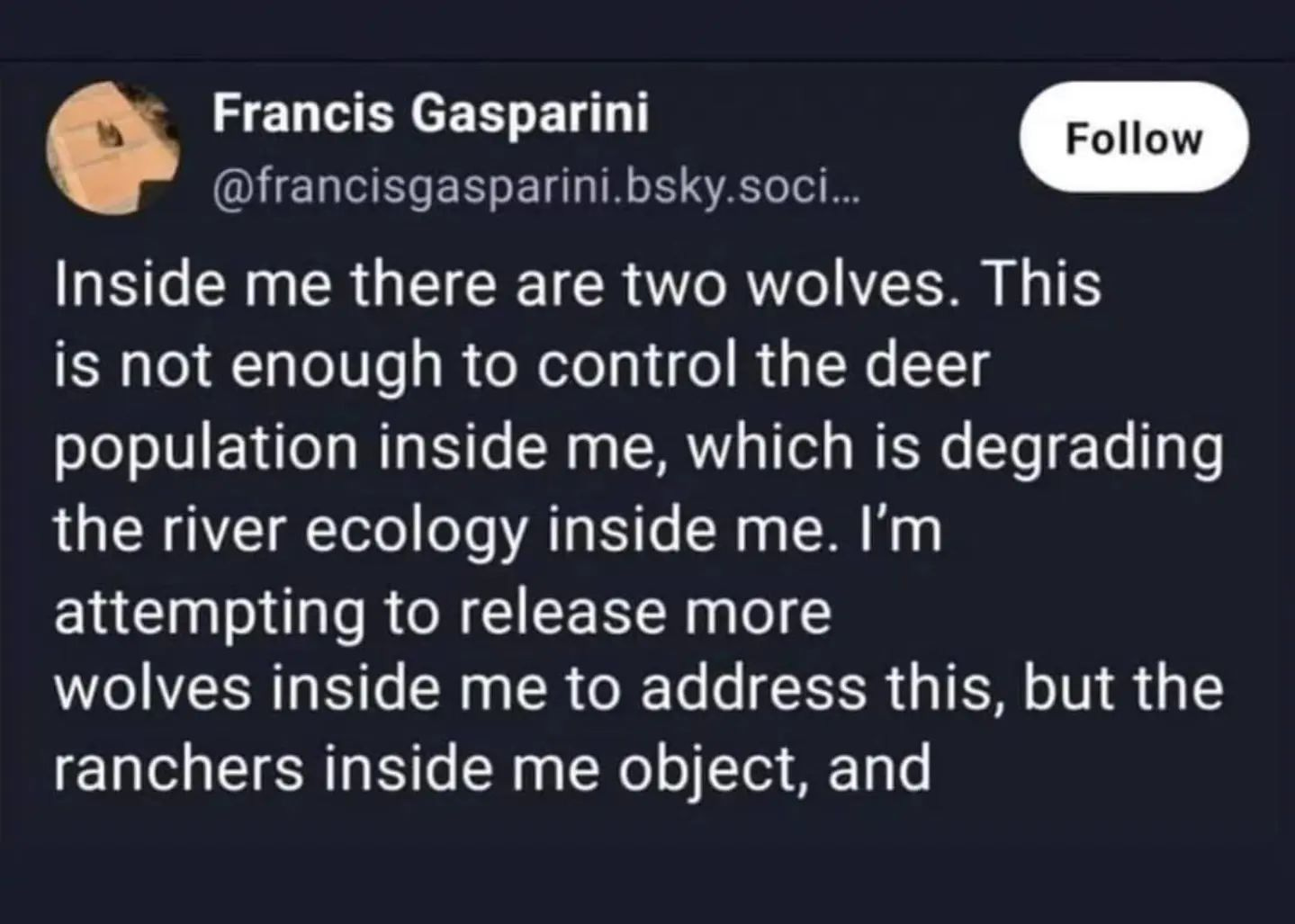#215 - Not Connecting
What they see may not be what you intended.
Some stories resonate clearly with an audience, and everyone seems to be on the same page about what’s happening and why. But it’s not a given.
Consider Danny Boyd’s video essay on American Psycho, and how audience reactions took a very different view from what the filmmakers saw as a darkly comic satire. Rebecca Renner looks at how the anti-capitalist message of Fight Club was sidelined by a “manosphere” who saw the opportunity to make money off of men’s insecurity by reading the narrative as a misogynistic playbook. Abraham Josephine Riesman scrutinizes the relationship between law enforcement, the military, and The Punisher, and how a murderous vigilante should make a poor role model for those taking oaths of service to their community and country.
Above, Lars VD Peet starts from Francois Truffaut’s quote that “There’s no such thing as an anti-war film,” to critically look at what happens when war is put on screen. The video looks at the myths about war perpetuated even by anti-war narratives, and how anti-war films still involve spectacle and heroic framing of violence and sacrifice.
Sometimes the disconnect between audience and creator is the very text of the story: Consider The Menu. One Take explores the way that the film uses an unwitting audience of foodies to make the point that real life foodies are also missing the purpose and enjoyment of a good meal:
Let’s wrap things up with:
A brief symposium on Asteroid City
It’s not just about when people find the opposite of the intended meaning in a story. Sometimes disconnect comes when there are a number of competing potential explanations without strong consensus.
Samuel Johnston starts things off with disappointment, seeing a movie made by Wes Anderson with himself as the sole intended audience. Thomas Flight suggests Asteroid City is a potent reminder that the audience can’t disentangle the performers’ identities from the characters they play. Kino Cowboy, Chlo Show, and Dylan offer a set of takes, including the idea that the film is about queer erasure in mid-century entertainment and grief.
Jake Bishop sees the film as a meditation on grief, and the inability to process grief without accepting the absurdity of the world and the subconscious as part of the process. Truest Picture calls it an existentialist film that jumps from narrative thread to thread in order to mimic the confusion and overstimulation of a tumultuous modern world.
👋 Are you new here?
Inneresting is a weekly newsletter about writing and things that are interesting to writers. Subscribe now to get more Inneresting things sent to your inbox.
Previously on Inneresting…
In case you missed it, last issue’s most clicked link was Robin Sloan’s Book Tour Simulator 2024.
What else is inneresting?
Matthew Ball gives an incredibly wonky look at the economics of Roblox, the unprofitable multi-billion dollar gaming platform.
Alex Ellis shows the difficulty in finding a metric to determine the productivity of a software developer.
See Also: Cal Newport’s Slow Productivity, which questions personal and external measurements of productivity among plaid-collar knowledge workers and argues against faux-productive busyness.
From Kerry Howley’s deep dive into a feud between two paleontologists looking for evidence about the astroid impact that killed the dinosaurs:
None of what follows will make sense absent a single social fact: The field of paleontology is mean. It has always been mean. It is, in the words of Uppsala University professor Per Ahlberg, “a honeypot of narcissists.” It is “a snake pit of personality disorders.”
And that’s what’s inneresting this week!
Inneresting is edited by Chris Csont, with contributions from readers like you and the entire Quote-Unquote team.
Are you enjoying this newsletter?
📧 Forward it to a friend and suggest they check it out.
🔗 Share a link to this post on social media.
🗣 Have ideas for future topics (or just want to say hello)? Reach out to Chris via email at inneresting@johnaugust.com, Mastodon @ccsont@mastodon.art, or Bluesky @ccsont.bsky.social


